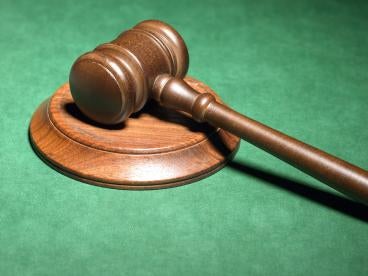On April 29, the Supreme Court issued two unanimous decisions giving district courts greater discretion and deference when sanctioning litigants in patent cases in Octane Fitness, LLC v. ICON Health & Fitness, Inc. and Highmark Inc. v. Allcare Health Management System, Inc. In Octane Fitness, the Court held that sanctions are proper when a judge determines that a particular case "stands out from others" in terms of either the strength of the losing party's position or in the unreasonable manner in which the losing party acted during litigation. Further, the Court lowered the burden of proof required for a prevailing party to establish that it is entitled to fees. In Highmark, the Court stated that greater deference should be granted to a district court's decision to award sanctions in patent trials and held that such decisions are to be reviewed under the "abuse of discretion" standard.
Based on these decisions, parties to patent infringement cases must be aware of the increased likelihood that sanctions – in the form of attorney fees – will be awarded to the prevailing party. Both plaintiffs and defendants must carefully evaluate the strength of their positions and conduct during litigation. In particular, defendants will be better positioned to recoup their attorney fees when faced with frivolous charges of patent infringement.
For patent cases, the law provides that "[t]he court in exceptional cases may award reasonable attorney fees to the prevailing party."1 However, in 2005, the Federal Circuit limited the instances in which fees may be awarded under § 285, holding a case was "exceptional" only "when there has been some material inappropriate conduct related to the matter in litigation, such as willful infringement, fraud or inequitable conduct in procuring the patent, misconduct during litigation, vexatious or unjustified litigation, conduct that violates Fed. R. Civ. P. 11, or like infractions."2 Further, the Federal Circuit stated that "[a]bsent misconduct in conduct of the litigation or in securing the patent, sanctions may be imposed against the patentee only if both (1) the litigation is brought in subjective bad faith, and (2) the litigation is objectively baseless" and required litigants to establish that they were entitled to fees by "clear and convincing evidence."3
In Octane Fitness, the Supreme Court rejected the Federal Circuit's framework as unduly rigid and impermissibly limiting the discretion granted to district courts under § 285. Based on the ordinary meaning of the word "exceptional" as "uncommon," "rare," or "not ordinary," the Court held that "an 'exceptional' case is simply one that stands out from others with respect to the substantive strength of a party's litigating position (considering both the governing law and the facts of the case) or the unreasonable manner in which the case was litigated." The Court stressed that in exercising their discretion, district courts should consider the totality of the circumstances, recognizing there is "no precise rule or formula for making these determinations."
Further, the Supreme Court rejected the requirement that litigants prove they deserve fees under § 285 by "clear and convincing evidence," as "nothing in § 285 justifies such as high standard of proof." Instead, litigants merely need to show their entitlement by "a preponderance of the evidence," the same standard applicable to other matters in patent litigation.
Based on its ruling in Octane Fitness, in Highmark, the Supreme Court held that all aspects of a district court's decision to award fees under § 285 should be reviewed under the "abuse of discretion" standard, since that is the traditional standard used in reviewing "matters of discretion." The Court explained that a district court is better able than an appellate court to decide whether a case is exceptional because the district court "lives with the case over a prolonged period of time," and a decision to award fees is essentially "rooted in factual determinations."
1 35 U.S.C. § 285.
2 Brooks Furniture Mfg., Inc. v. Dutailier Int’l, Inc., 393 F.3d 1378, 1381 (2005).
3 Id.



 i
i


